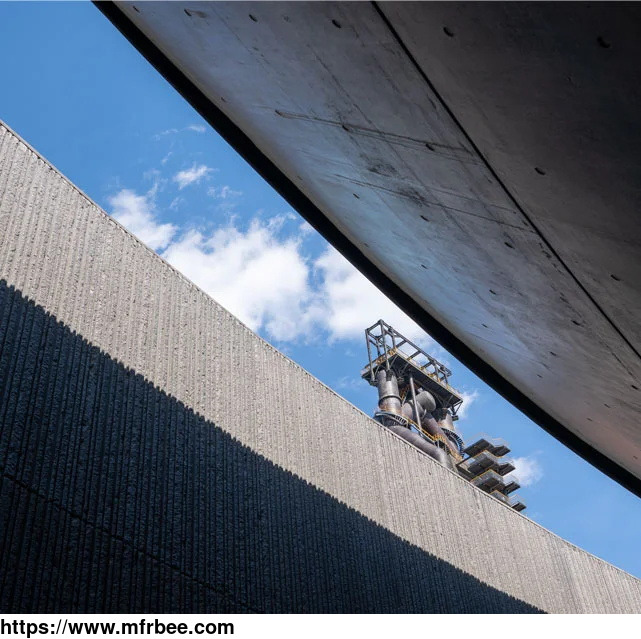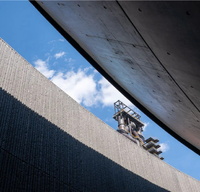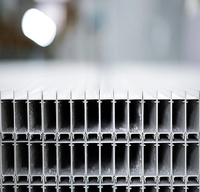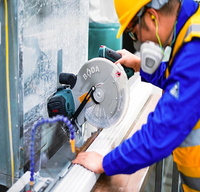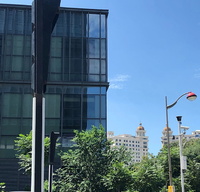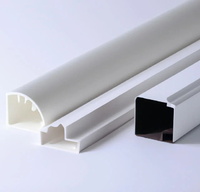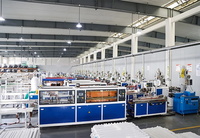Custom PP/PE Extrusion Profile
Product Quick Detail
- Minimum Order
- 2000
- Place Of Origin
- Wuxi, Jiangsu, China
- Packaging
- N/A
- Delivery
- 15 Days
Specifications
PE/PP extrusion profile is the process of producing custom extruded products using Polypropylene (PP) or Polyethylene (PE) material. PP/PE extrusion profiles are lightweight, strong, and durable, making them suitable for various applications such as packaging, automotive parts, and building materials. The customization of the extrusion process allows for varied shapes, sizes, colors, and textures, meeting the specific needs of the customer. PP/PE extrusion profiles are an excellent option for those seeking a cost-effective and efficient solution to meet their manufacturing needs.
Types of Custom PE/PP Profile
Custom HDPE Profile
High-density polypropylene extrusion profiles are known for their toughness, resistance to impact and chemicals, and ability to withstand extreme temperatures. HDPE profiles are used in a wide range of industries, including construction, automotive, and marine applications.
PP Enhanced Series
Extruded polyethylene (PP) enhanced series profiles are made by adding fillers and reinforcements to improve their mechanical properties. The enhanced series profiles are used in applications that require higher stiffness, impact strength, and chemical resistance.
Custom Polystyrene Profiles
Polystyrene profiles are known for their excellent thermal insulation and lightweight properties. Custom polystyrene profiles are commonly used in building and construction applications, such as insulation panels, window frames, and door frames. Additionally, they are also used in the automotive industry for bumper systems, interior trims, and dashboard components.
What Are Examples of PP/PE Extrusion Profile?
Profiles for Windows and Doors
One of the most popular instances of profile extrusion is window and door profiles. These profiles are normally manufactured of UPVC or aluminum and come in a number of styles and shapes to accommodate a multitude of uses. They increase building and residential insulation, durability, and energy efficiency. Window and door profiles can also be changed to meet the needs of a given project.
Profiles for Electrical Enclosures
Another type of profile extrusion that is often utilized in industrial and commercial applications is electrical enclosure profiles. These profiles, which are commonly composed of aluminum or other metals, are intended to shield electrical components from physical and environmental harm. They are a cost-effective alternative for safeguarding enclosures that may be tailored to meet individual enclosure sizes and designs.
LED Lighting Profiles
LED lighting profiles are an example of profile extrusion commonly used in lighting applications. These profiles are typically made of aluminum, and their design allows for the integration of LED light strips in commercial and residential spaces. LED lighting profiles are available in a variety of shapes and sizes with different diffusers, depending on the light requirement. LED lighting profiles can offer various benefits such as improved energy efficiency, aesthetics, and longevity.
Automotive Profiles
Automotive profiles are another type of profile extrusion commonly used in the automotive industry. These profiles or plastic extrusion profiles are typically made from thermoplastics, aluminum or other metals, and are designed to fit specific automotive applications. Automotive profiles provide benefits such as improved aerodynamics, reduced weight, and increased fuel efficiency. Examples of automotive profiles include window trims, fenders, and door frames.
What Is Polymer Profile Extrusion?
Polymer profile extrusion is a manufacturing technique used to create plastic profiles with different shapes and dimensions by forcing molten plastic through a die. The process involves melting the plastic pellets, passing the melted polymer through the extruder, and shaping the polymer while it is still in a molten state through extrusion dies.
Manufacturing Process: Polymer profile extrusion involves a series of steps beginning with the melting of the plastic material in an extruder. The plastic material is then pushed through various mechanisms, such as rollers or calibrators, to help it achieve the desired shape and dimensions.
Materials: Various types of polymers can be used in polymer profile extrusion, including, but not limited to, polyethene, polypropylene, PVC, and other thermoplastics. The selection of the polymer materials is based on the specific application, performance requirements and standards, and regulations. The material is typically chosen based on characteristics such as strength, durability, and resistance to different types of environmental stressors. The properties of the selected polymer material help to determine the optimal manufacturing parameters to be used during the extrusion process.
If you are looking for custom extruded profiles, Huayu is your trusted extruded profile company, specializing in polymer profile extrusion using various types of high-quality polymers to create profiles with precise shapes and dimensions.
- Country: China (Mainland)
- Founded Year: 2017
- Address: No.28 Rongtang Road,Yuqi Town,Huishan District
- Contact: huayuplas com
